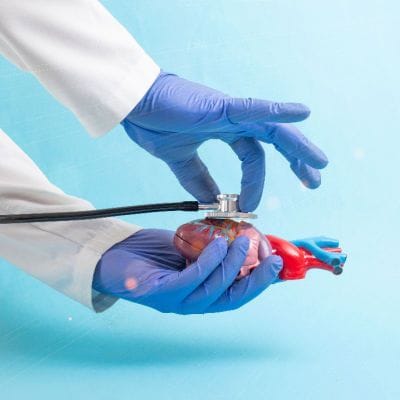
The rhythm of our heartbeat is the orchestrated result of a complex interplay of electrical signals within the heart. Heart rhythm conditions emerge when this symphony falters, requiring a keen understanding of effective management and care. This comprehensive exploration delves into the nuances of heart rhythm conditions, unraveling their definitions, causes, symptoms, and treatment pathways.
Heart Rhythm Conditions Unveiled
Heart rhythm conditions, or arrhythmias, encompass a range of disorders where the heart's natural rhythm is disrupted. The heart's rhythm is orchestrated by electrical impulses that coordinate the contraction and relaxation of its chambers. When these electrical signals misfire, it can lead to irregular heartbeats, ranging from too fast (tachycardia) to too slow (bradycardia).
Types of Heart Rhythm Conditions: Diverse Melodies of Dysfunction
-
Atrial Fibrillation (AFib): The most common type, AFib, involves rapid and irregular contractions of the atria the heart's upper chambers. It can lead to an increased risk of stroke and other heart-related complications.
-
Atrial Flutter: Similar to AFib, but with a more organized and less chaotic rhythm in the atria.
-
Supraventricular Tachycardia (SVT): Episodes of rapid heart rate originating above the heart's ventricles.
-
Ventricular Tachycardia: A fast, regular beating of the heart's lower chambers, the ventricles.
-
Ventricular Fibrillation: A chaotic, rapid heartbeat originating in the ventricles. It's a medical emergency and can be life-threatening.
-
Bradycardia: A slower-than-normal heart rate, often below 60 beats per minute, may not pump enough blood to meet the body's needs.
Causes of Heart Rhythm Conditions
Heart rhythm conditions can stem from various factors, often involving a combination of genetic, lifestyle, and health-related elements:
-
Age: The risk of heart rhythm disorders increases with age.
-
Heart Disease: Conditions such as coronary artery disease and heart attack can disrupt the heart's electrical signals.
-
High Blood Pressure: Hypertension can strain the heart and lead to rhythm abnormalities.
-
Diabetes: Uncontrolled diabetes can affect the nerves that regulate the heart.
-
Genetics: Family history may predispose individuals to certain rhythm disorders.
-
Lifestyle Factors: Smoking, excessive alcohol consumption, and substance abuse can contribute to arrhythmias.
Symptoms of Heart Rhythm Conditions
The symptoms of heart rhythm conditions can vary depending on the type and severity but may include:
-
Palpitations: Feeling of fluttering or rapid heartbeat.
-
Fatigue: Lack of energy due to the heart's inefficient pumping.
-
Dizziness or Lightheadedness: Resulting from inadequate blood flow to the brain.
-
Chest Discomfort: Pressure, pain, or discomfort in the chest.
-
Shortness of Breath: Difficulty breathing, especially during physical activity.
Diagnosis
Accurate diagnosis is essential for tailoring appropriate treatment plans. Standard diagnostic tools include:
-
Electrocardiogram (ECG or EKG): Records the heart's electrical activity, identifying irregularities.
-
Holter Monitor: A portable ECG device worn for 24 to 48 hours to monitor heart rhythms continuously.
-
Event Monitor: Similar to a Holter monitor but worn for a more extended period, activated by the individual when symptoms occur.
-
Electrophysiology Study (EPS): An invasive procedure involving the placement of catheters to assess the heart's electrical system.
Treatment Strategies
The approach to treating heart rhythm conditions is diverse, with strategies tailored to the specific type and severity of the disorder:
-
Medications: Antiarrhythmic drugs can help regulate the heart's rhythm.
-
Cardioversion: Electrical shocks or medications to restore a normal heart rhythm.
-
Ablation Therapy: Invasive procedure involving destroying abnormal heart tissue causing arrhythmias.
-
Pacemaker Implantation: A pacemaker can regulate the heart's rhythm by sending electrical impulses for bradycardia.
-
Implantable Cardioverter-Defibrillator (ICD): An ICD can deliver shocks to restore normal rhythm for life-threatening arrhythmias.
-
Lifestyle Modifications: Adopting a heart-healthy lifestyle, including regular exercise, a balanced diet, and stress management.
Living with Heart Rhythm Conditions
Managing heart rhythm conditions involves ongoing care and lifestyle adjustments:
-
Medication Adherence: Taking prescribed medications consistently.
-
Regular Monitoring: Follow-up appointments and monitoring as advised by healthcare providers.
-
Lifestyle Choices: Embracing heart-healthy habits and avoiding triggers like excessive caffeine or alcohol.
-
Emotional Well-being: Managing stress and seeking support when needed.
Conclusion
Heart rhythm conditions are nuanced disorders that necessitate personalized care and attention. Individuals can actively participate in their heart health by understanding the types, causes, symptoms, and available treatments. Regular communication with healthcare providers, adherence to treatment plans, and a commitment to a heart-healthy lifestyle contribute to the ongoing melody of heart rhythm health.
Disclaimer:
The information on this website is provided for educational and information purposes only and is not medical advice. Always consult with a licensed medical provider and follow their recommendations regardless of what you read on this website. If you think you are having a medical emergency, dial 911 or go to the nearest emergency room. Links to other third-party websites are provided for your convenience only. If you decide to access any of the third-party websites, you do so entirely at your own risk and subject to the terms of use for those websites. Neither Fort Bend Heart Center, nor any contributor to this website, makes any representation, express or implied, regarding the information provided on this website or any information you may access on a third-party website using a link. Use of this website does not establish a doctor-patient relationship. If you would like to request an appointment with a health care provider, please call our office at (281) 265-8500.

